Navigation
Install the app
How to install the app on iOS
Follow along with the video below to see how to install our site as a web app on your home screen.

Note: This feature currently requires accessing the site using the built-in Safari browser.
More options
You are using an out of date browser. It may not display this or other websites correctly.
You should upgrade or use an alternative browser.
You should upgrade or use an alternative browser.
Mountains - How can I make it better?
- Thread starter tnvol
- Start date
- Joined
- Dec 16, 2003
- Messages
- 33,896
- Reaction score
- 1,853
- Location
- Edmonton
- Website
- www.mikehodson.ca
- Can others edit my Photos
- Photos NOT OK to edit
It's severely lacking in contrast and it looks noisy. To me, it looks like it was probably too dark and someone tried to fix it and did a poor job of it.
It wouldn't be hard to get some of the contrast back...in Photoshop, I'd primarily use the levels & curves tools.
It wouldn't be hard to get some of the contrast back...in Photoshop, I'd primarily use the levels & curves tools.
Josh220
No longer a newbie, moving up!
- Joined
- May 23, 2009
- Messages
- 1,730
- Reaction score
- 83
- Location
- California
- Can others edit my Photos
- Photos NOT OK to edit
Needs more contrast
Overexposed/washed out
No foreground/middle ground. It's all mountain, with no sense of depth. You COULD say the mountains are the middle ground and the sky is the background, but it would still be lacking a foreground.
Overexposed/washed out
No foreground/middle ground. It's all mountain, with no sense of depth. You COULD say the mountains are the middle ground and the sky is the background, but it would still be lacking a foreground.
tnvol
TPF Noob!
- Joined
- Jun 20, 2009
- Messages
- 224
- Reaction score
- 0
- Location
- Tennessee
- Can others edit my Photos
- Photos OK to edit
My photoshop skills are very limited at this point. I use Lightroom. I actually had to darken it a lot because it was a really bright and hazy day. Lot's of dust in the air. It was really overexposed. Thanks for the input!
- Joined
- Dec 16, 2003
- Messages
- 33,896
- Reaction score
- 1,853
- Location
- Edmonton
- Website
- www.mikehodson.ca
- Can others edit my Photos
- Photos NOT OK to edit
In Lightroom, adjust the 'black' slider in the exposure panel....I'd also try using a good amount of 'clarity' and finally using the curves adjustment (graph) to give it more contrast & pop.
You could also try playing with the color...maybe add some vibrance.
You could also try playing with the color...maybe add some vibrance.
benlonghair
TPF Noob!
- Joined
- Jun 1, 2009
- Messages
- 1,072
- Reaction score
- 0
- Location
- Woodstock, CT
- Can others edit my Photos
- Photos OK to edit
in my limited experience, I'd say it needed to be stopped down 2/3-1. Maybe even more. But maybe that's just contrast, since your whites are gray and blacks are dark gray.
I would have tried it metered off the ground, the clouds and the blue sky. If that didn't work, I'd go to exposure compensation.
EDIT: Playing with this in GIMP: +50 contrast, -40 blue saturation. I might leave a little more blue, it washed out a little contrast when I desaturated it.

I would have tried it metered off the ground, the clouds and the blue sky. If that didn't work, I'd go to exposure compensation.
EDIT: Playing with this in GIMP: +50 contrast, -40 blue saturation. I might leave a little more blue, it washed out a little contrast when I desaturated it.

Last edited:
musicaleCA
TPF Noob!
- Joined
- May 23, 2009
- Messages
- 2,303
- Reaction score
- 0
- Location
- Vancouver, BC
- Can others edit my Photos
- Photos OK to edit
If it was really overexposed then you probably lost alot of information from clipping the highlights. Bringing the exposure down might have introduced a lot of posterization too, which is what I'm seeing; that might be what appears to be noise.
I know the saying is "expose right" but one can certainly overdo it. :greenpbl:
I know the saying is "expose right" but one can certainly overdo it. :greenpbl:
rat_1_ca
TPF Noob!
- Joined
- Jan 6, 2009
- Messages
- 40
- Reaction score
- 0
- Location
- Halifax NS
- Can others edit my Photos
- Photos OK to edit
Josh220
No longer a newbie, moving up!
- Joined
- May 23, 2009
- Messages
- 1,730
- Reaction score
- 83
- Location
- California
- Can others edit my Photos
- Photos NOT OK to edit
Bring down the blue saturation. The image now looks like a polarizer filter was used improperly (as they usually are) to give it that fake blue look.
Torus34
No longer a newbie, moving up!
- Joined
- Jan 26, 2006
- Messages
- 2,117
- Reaction score
- 37
- Location
- Tottenville, Staten Island, NYC USA
- Can others edit my Photos
- Photos OK to edit
There are several things which could be done to dramatically improve the composition of the photograph. Unfortunately, these have to be considered prior to exposure.
Post-processing is not a cure-all.
Post-processing is not a cure-all.
tnvol
TPF Noob!
- Joined
- Jun 20, 2009
- Messages
- 224
- Reaction score
- 0
- Location
- Tennessee
- Can others edit my Photos
- Photos OK to edit
There are several things which could be done to dramatically improve the composition of the photograph. Unfortunately, these have to be considered prior to exposure.
Post-processing is not a cure-all.
Could you please tell what they are?
benlonghair
TPF Noob!
- Joined
- Jun 1, 2009
- Messages
- 1,072
- Reaction score
- 0
- Location
- Woodstock, CT
- Can others edit my Photos
- Photos OK to edit
Personally, I kinda like the composition. You've got decent balance (in my untrained eye) from the upper right corner to the lower left corner, nice use of lines in the bottom thrid of the photo, and the cloud shadows on the mountains give it nice depth.
I'm a noob, though, so take what I say with a grain of salt.
I'm a noob, though, so take what I say with a grain of salt.
benhasajeep
No longer a newbie, moving up!
- Joined
- May 4, 2006
- Messages
- 4,020
- Reaction score
- 497
If you can re-take the shot, choosing a different time may yield a better result. i.e. Early in the morning or later in the afternoon.
Ditto (early morning or evening is normally the best light for photography, go shopping or touring in the afternoon). This looks to be harsh mid day light. Lots of haze in the shot. By far mornings first light is the best. Those posters you see of the Alps and other mountain ranges that are crisp and clear are mostly morning and evening shots. About 10 years ago I learned a valuable lesson at the Grand Canyon. If you want a good shot, you have to get up before the sun to get to your spot in time, as the early birds are just awakening. :mrgreen: Then you will have fantastic light to work with.
Unfortunately, I like to sleep in.

Torus34
No longer a newbie, moving up!
- Joined
- Jan 26, 2006
- Messages
- 2,117
- Reaction score
- 37
- Location
- Tottenville, Staten Island, NYC USA
- Can others edit my Photos
- Photos OK to edit
tnvol;
Rather than comment on a single picture to illustrate a few points in composition, let me instead suggest you get hold of a copy of 'The Photographer's Eye' by Michael Freemen. And do read every word -- don't just look at the illustrations. Learn the concepts.
From there, expand your reading to include books on composition for artists as well as those aimed at photographers.
Achieving good composition is not a matter of following a few simple rules but, rather, knowing many general concepts which affect the impact of a finished picture and applying those which pertain to a particular situation.
Wish you the very best.
Rather than comment on a single picture to illustrate a few points in composition, let me instead suggest you get hold of a copy of 'The Photographer's Eye' by Michael Freemen. And do read every word -- don't just look at the illustrations. Learn the concepts.
From there, expand your reading to include books on composition for artists as well as those aimed at photographers.
Achieving good composition is not a matter of following a few simple rules but, rather, knowing many general concepts which affect the impact of a finished picture and applying those which pertain to a particular situation.
Wish you the very best.
Similar threads
- Replies
- 13
- Views
- 309
- Replies
- 3
- Views
- 183
- Replies
- 10
- Views
- 628



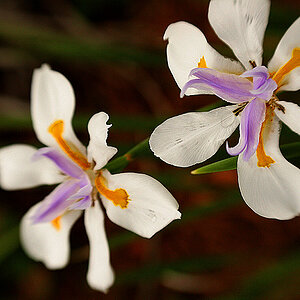
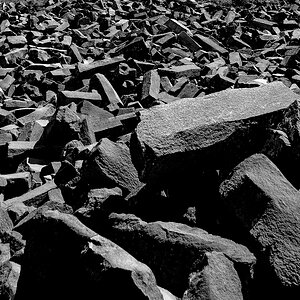
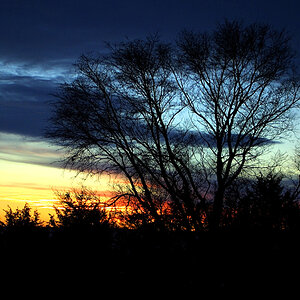

![[No title]](/data/xfmg/thumbnail/39/39292-4169a355b794ae9735845c4ad45d06ff.jpg?1619738958)
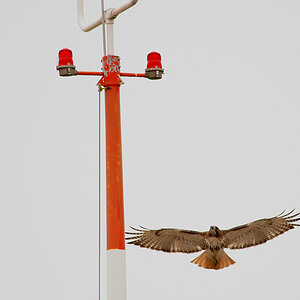
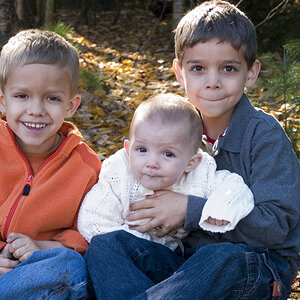
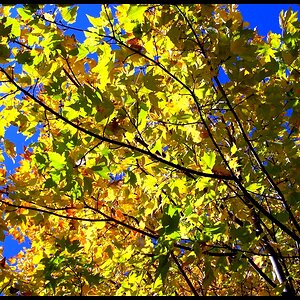

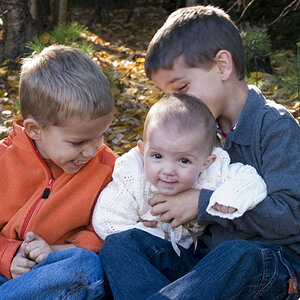
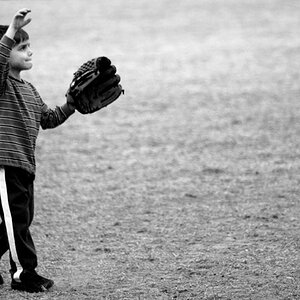
![[No title]](/data/xfmg/thumbnail/39/39491-353a6df9b207e97dadcdce4f98248fcd.jpg?1619739051)